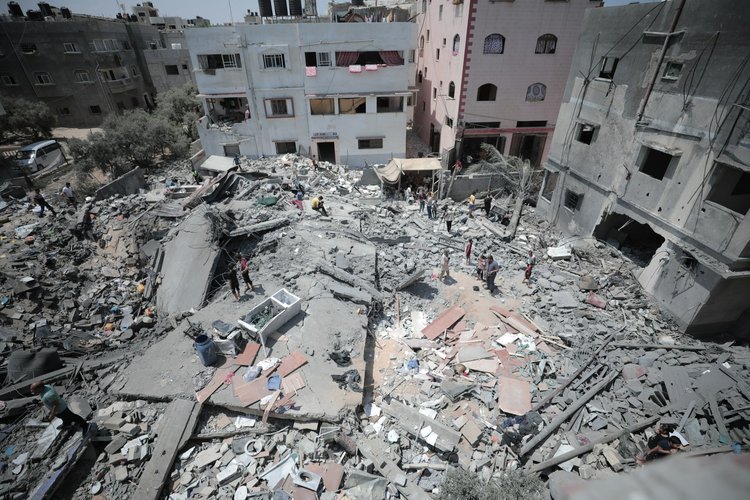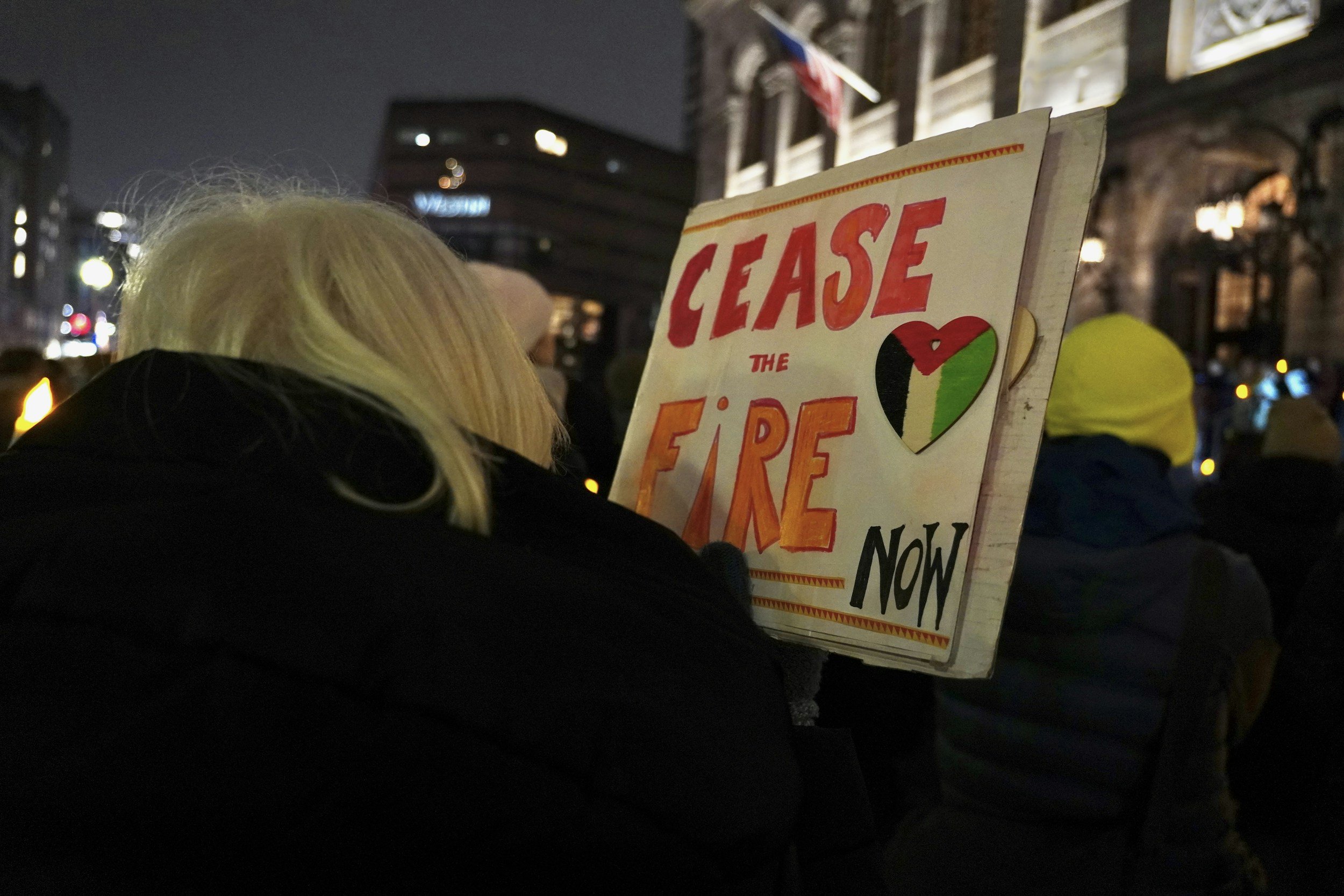Washington Watch Articles From 2024

I’m Skeptical About the Israel/Lebanon Peace Deal
This past week, Israeli, Lebanese, and US leaders were busy patting themselves on the back announcing the completion of an Israeli/Lebanese ceasefire agreement.

History Didn’t Begin or End on October 7th
On October 7th, the continuing genocide in Gaza and the massive bombings in Lebanon will likely be ignored by US officials and media outlets as they solemnly commemorate the anniversary of Hamas’ attack on Israel. What they’ll ignore is that the history of the Israeli-Palestinian conflict didn’t begin on October 7th, nor did the suffering end on that day.

Harris Can Contribute to Israeli-Palestinian Peace and Grow Her Lead
If Kamala Harris, the Democratic nominee for US president, were to take a decisive stance demanding that Israel agree to an immediate ceasefire and unimpeded aid to Palestinians, she would expand her vote lead over her Republican opponent, Donald Trump.

A Way Forward Out of the Mess We’re In
The headlines emanating from Palestine-Israel, though ominous, should have been expected. The problem, of course, is that the Israeli government appears intent on making a desperately bad situation worse, and the administration of US President Joe Biden is acting as if doing what it’s been doing for the past three-and-a-half years is something other than pouring petrol on a raging fire.

Palestine Won at the Democratic Convention
The 2024 Democratic National Convention was an exhausting roller coaster ride for Arab Americans and supporters of Palestinian rights. It was a messy affair, with highs and lows, some small victories and some setbacks. But on balance, the naysayers are wrong, because Palestine and supporters of Palestinian rights were big winners during the four days in Chicago.

Because Democrats Won’t Discuss Palestinian Rights in Chicago, We Will.
Democrats are approaching their 2024 convention aware of the many critical issues at stake in this election. There is deep concern with what a second Trump administration would mean for women’s rights, civil rights, environmental protections, immigration policy, civil discourse, and the very foundation of our democratic order. All of these issues and more are discussed at length in the 2024 Democratic Party Platform and will be addressed by an assortment of speakers at the convention.

Questions That Must Be Asked
Why—in the midst of critical negotiations to implement President Biden’s plan to bring about a ceasefire in Gaza, release Israelis held captive by Hamas and a significant number of Palestinians held by Israel, and move toward a negotiated permanent end to the conflict—would Israeli leader Benjamin Netanyahu decide to assassinate the chief Hamas negotiator while he was visiting Iran? And why—while the US says it was working to deescalate tensions with Lebanon’s Hezbollah—would Israel choose to up the ante by assassinating Hezbollah’s number two?

Observations on the Netanyahu Visit
Israeli Prime Minister Benjamin Netanyahu’s visit to the US to address a joint session of Congress provided us with a lot to digest. It was his fourth such invitation—more than any other world leader in history (surpassing the UK’s Winston Churchill who made the trans-Atlantic trek to address Congress on three occasions).

Israel’s Backhanded “Apology” for the Rafah Bombing
On Monday, May 27, Israel appeared to “apologize” for the deaths of 45 Palestinians resulting from its bombing raid on a “humanitarian zone” in Rafah. By any measure, it was a backhanded apology that conveyed more insult than atonement.

Things That Should But Can’t Be Said
Four months into Israel’s genocidal assault on Gaza, one might have thought that American policymakers and commentators would have learned some lessons. Instead, their discussions about the conflict appear to remain trapped in the same tiresome and, at times, delusional framing that existed before the current fighting began.

Working for a Ceasefire, From the Bottom Up
Despite the Biden administration’s refusal to back a ceasefire that would help end Israel’s genocidal assault on Gaza, momentum is growing across the US calling on the administration to reverse course.

Biden Should Heed Democratic Voters on Gaza
2024 may be the first election in which the issues involving Palestinian rights may impact the outcome. Over the past several decades, elections have been fought over a range of domestic and foreign policy concerns - from civil rights and abortion to the wars in Vietnam and Iraq.

The US and Israel Failed Peace Thirty Years Ago
Last week, the New York Times carried a lengthy Tom Friedman article, “What Is Happening to Our World.” In it, Friedman makes the claim that Hamas could have turned Gaza into Dubai if only they had made the right choices in 2005. I hold no brief for Hamas.

Three Months Later: Still No Lessons Learned
One day last week, the New York Times printed two separate articles describing Israeli and Palestinian reactions to the ongoing war that, together, paint a disturbing portrait of where we are three months after October 7th.